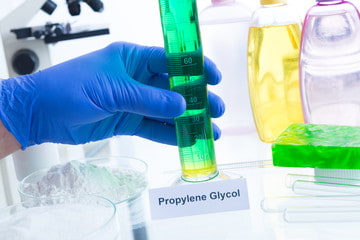Welcome To ChemAnalyst

The shifting inclination of major economies towards sustainable growth models has mounted up an intangible pressure on the petrochemical industries, which have long been accused of being a primary source of depleting fossil fuel resources and increasing carbon emissions. Many companies are working towards offsetting the traditional petroleum-based production processes with bio-derived procedures.
Falling in line with the sustainability-driven market sentiments, Metadynea LLC, the subsidiary of Metafrax Chemicals group, has finalized licensing agreement with Air Liquide Engineering and Construction for providing the license and basic design of a bio-propylene glycol complex in Russia. The complex will be housed in the Metadynea site of Orekhovo-Zuevo town in Moscow, Russia, and will be boasting production units for generating glycerine and pharmaceutical-quality bio-propylene glycol.
The planned complex, scheduled to complete construction in 2022 and commence production by 2024, will be exploiting BASF proprietary copper hydrogenation catalyst to accomplish the synthesis of bio-propylene glycol from glycerine, which is derived from natural sources. Propylene glycol, traditionally produced from propylene, a crude oil derived feedstock, is chiefly applied as a solubilizer in the pharmaceuticals, closely followed by its use as an emulsifier in the food and cosmetic sector. It is also used as an anti-freezing and heat transfer fluid in the automobile and aviation industry.
The introduction of a green alternative to the fossil-derived propylene glycol is being viewed as a gamechanger of the current market dynamics which is liable to transform in future. As per the market perspective, the new addition may pose a threat to the propylene derivative business. According to ChemAnalyst, the pharmaceutical and automotive sectors are the major drivers for the propylene glycol market, whose dynamics are closely dependent on crude oil futures. The demand for bio-propylene glycol is anticipated to grow at a remarkably high pace in comparison to its fossil-derived counterpart with full support from the local government and environmentalist. The promising business opportunities offered by this field is expected to encourage more players to foray into renewable propylene glycol production.
On the other hand, the fossil-derived propylene glycol demand may receive flaks from the end-user industries with increasing competitiveness. The prices of propylene glycol which are currently on the downward side across major countries are anticipated to further deteriorate in the market, ripples of which could reach the upstream propylene market dynamics that may suffer from overabundance and low-profit margins in the coming years. Nevertheless, the upcoming project certainly addresses a crucial issue of environmental pollution which makes its advent imperative for the much-needed transition in commodity production that will accelerate the reduction of the carbon footprint of Russia.
We use cookies to deliver the best possible experience on our website. To learn more, visit our Privacy Policy. By continuing to use this site or by closing this box, you consent to our use of cookies. More info.
